Sustainable Agriculture Report: Biofertilizers and Technology
VerifiedAdded on 2022/09/16
|6
|826
|24
Report
AI Summary
This report examines sustainable agriculture, focusing on biofertilizers and agroecological technologies. It analyzes research on biofertilizers, which are microorganisms used to enhance plant nutrients, and their cost-effectiveness compared to chemical fertilizers. The report also discusses the application of agroecology, such as China's Rice-Fish-Duck system, highlighting the interconnectedness of ecological systems for sustainable food production. Key findings include the benefits of biofertilizers in maintaining soil health, controlling pests, and promoting eco-friendly environments. The report concludes that using biofertilizers and specific technologies can enhance sustainable agriculture, ensuring food production while minimizing environmental impact. The report emphasizes the need for sustainable practices to meet the food demands of a growing global population while preserving the environment.
1 out of 6
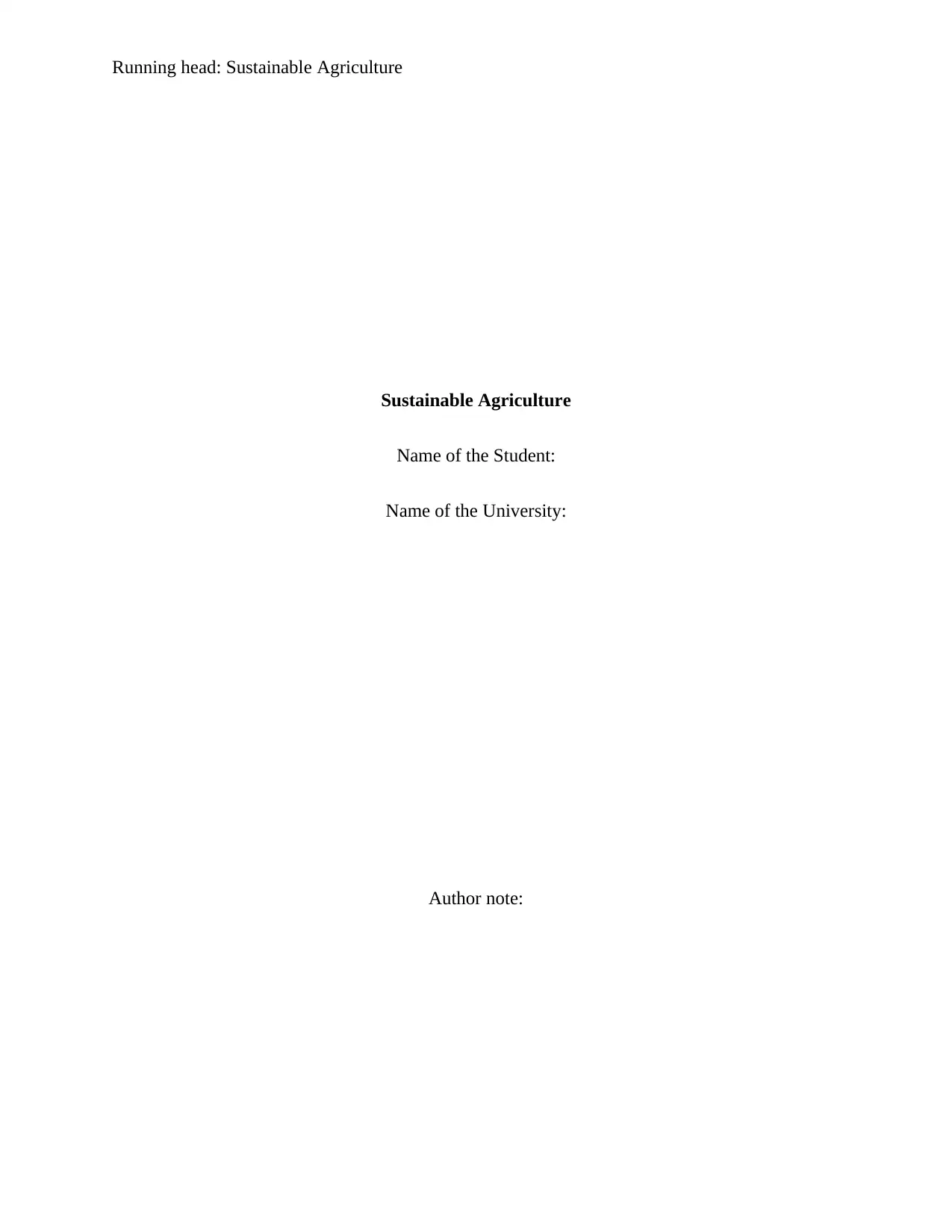
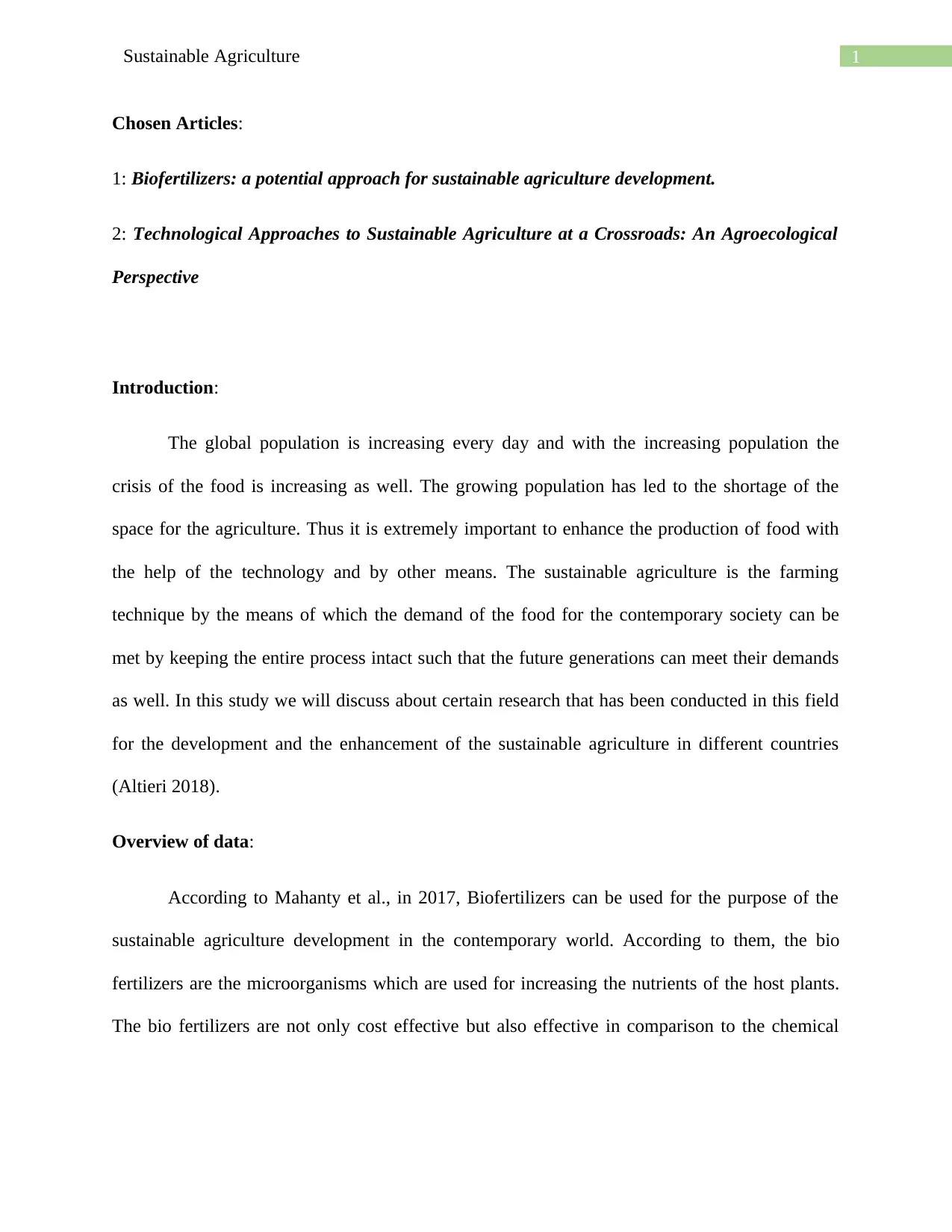
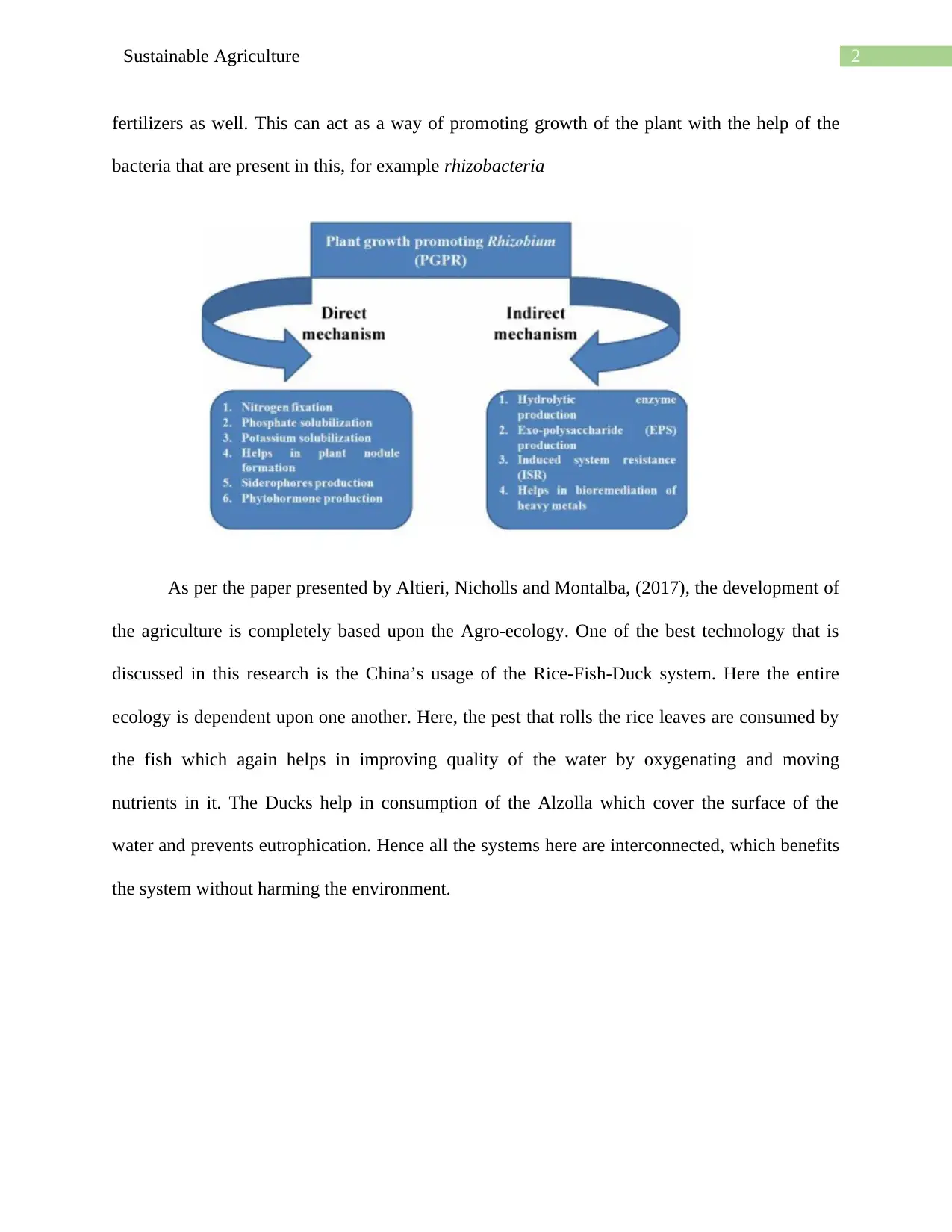

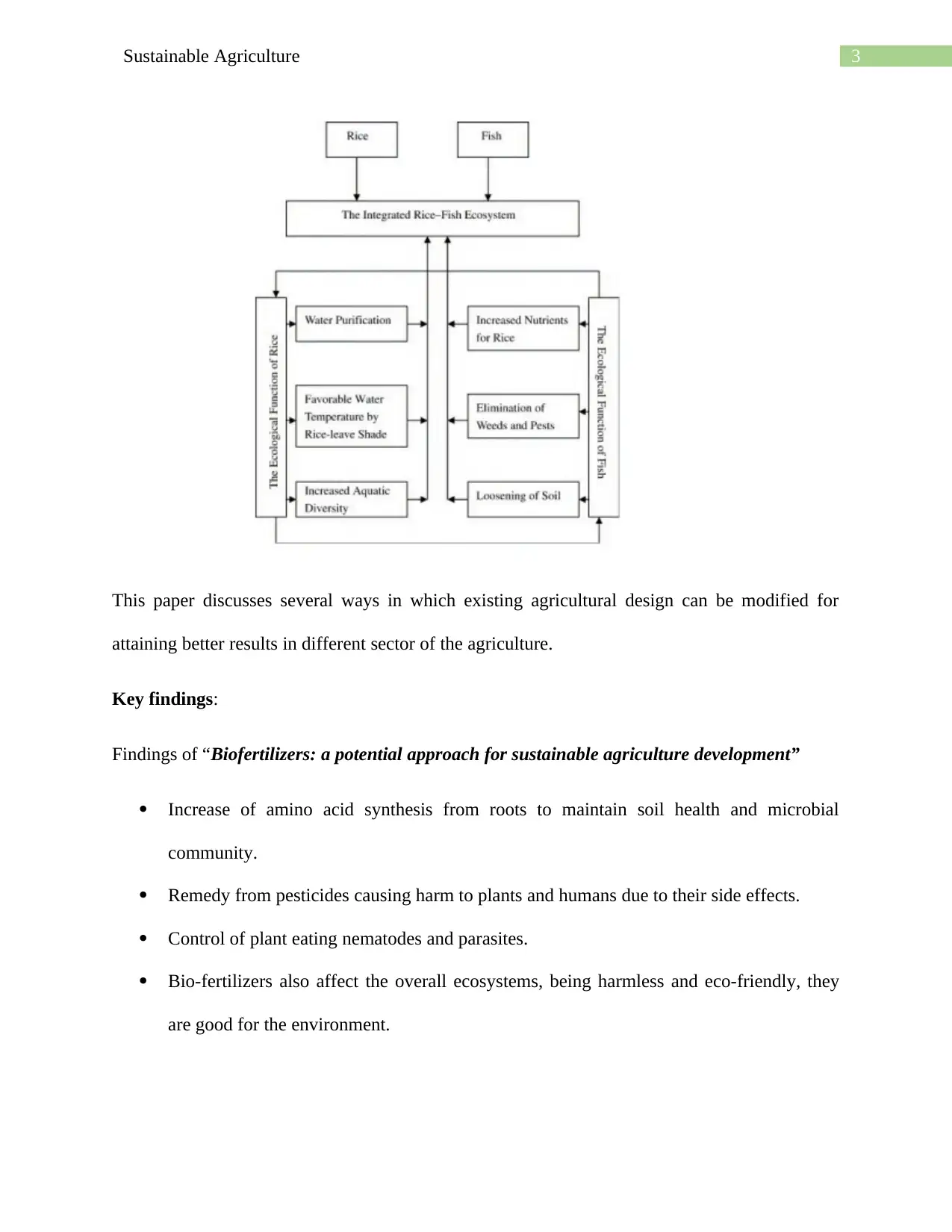
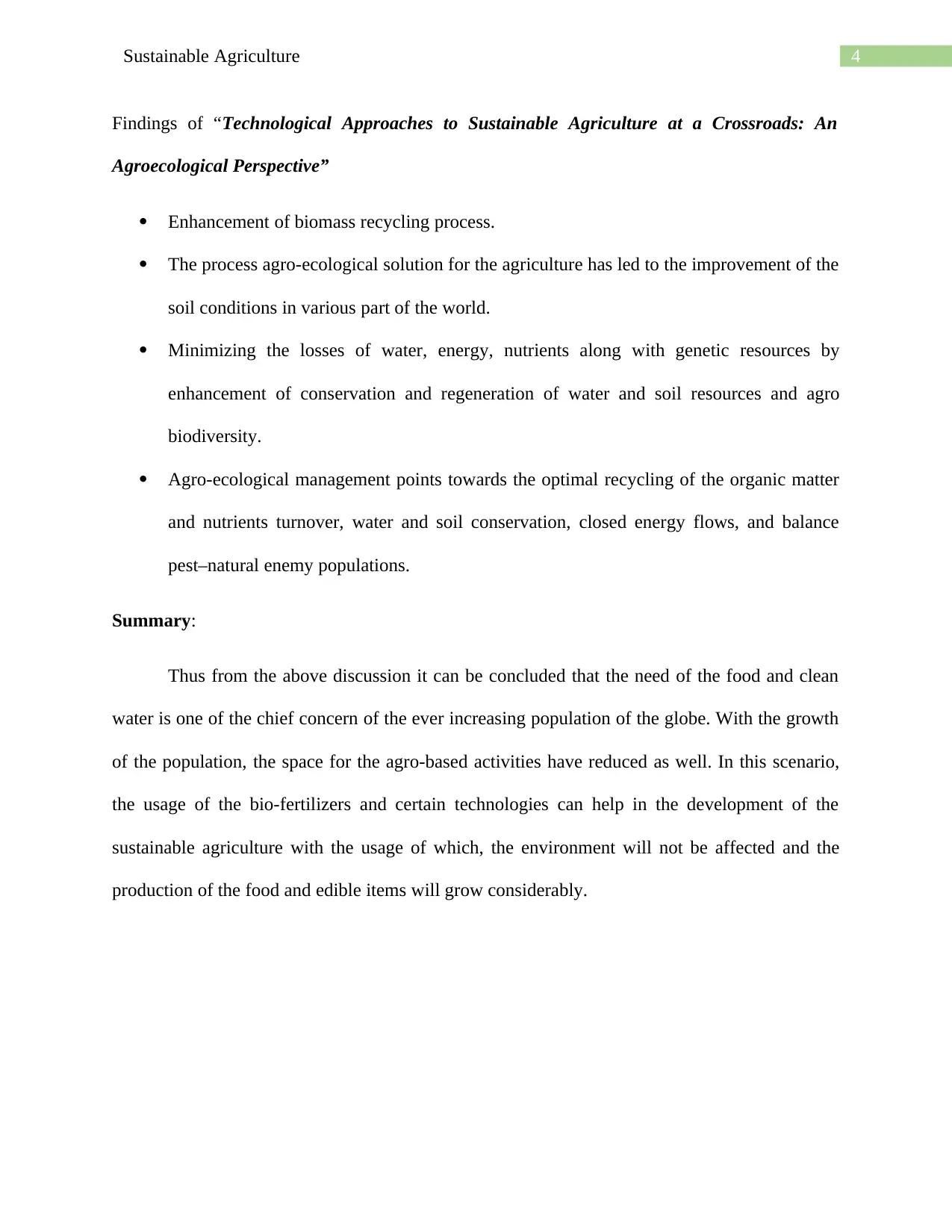
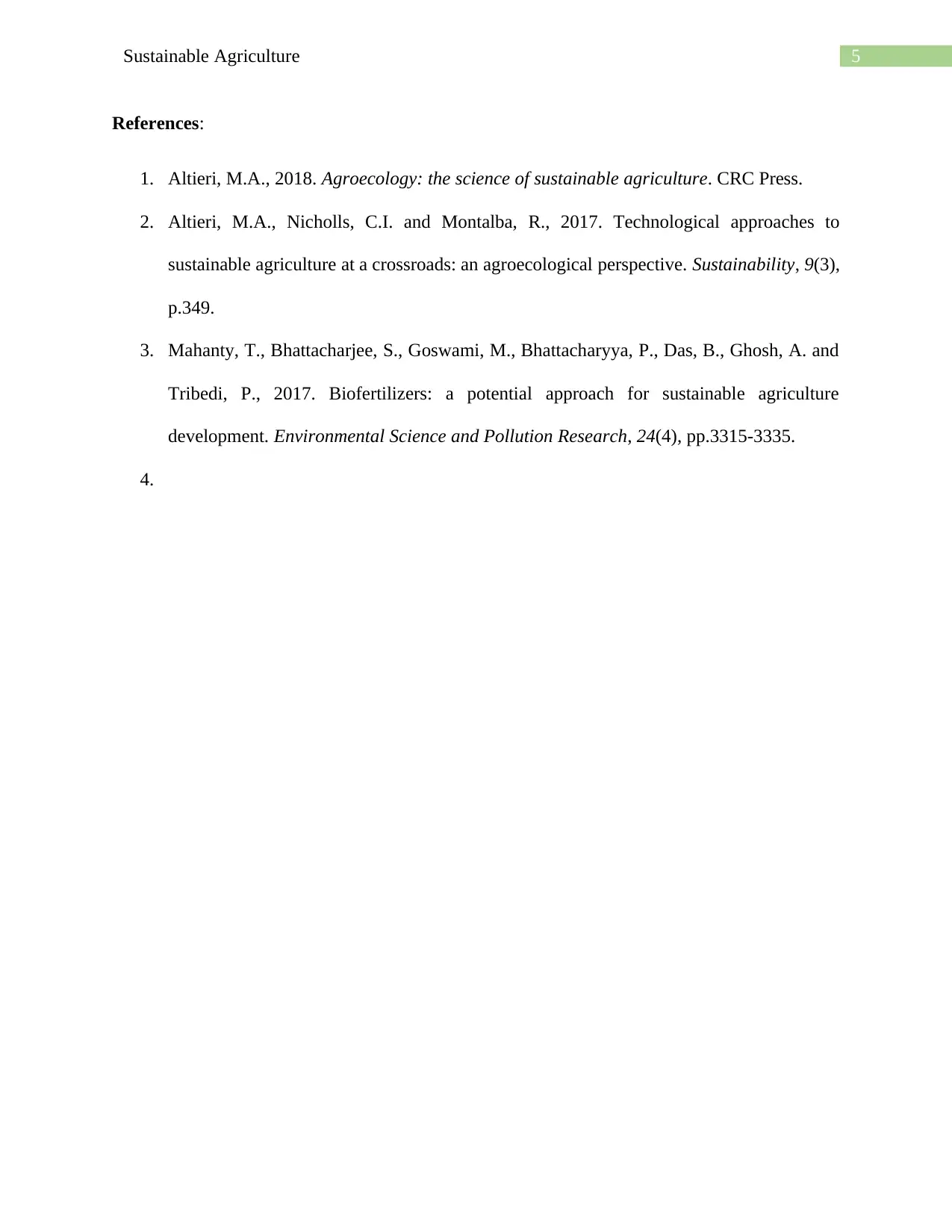



![[object Object]](/_next/static/media/star-bottom.7253800d.svg)